
Lincoln and McClellan: SET IN STONE?
by George C. RableLincoln and McClellan: SET IN STONE? George C. Rable Mention George B. McClellan to students of the American Civil War, and the response is predictable. They know McClellan as a foil to Lincoln who might be able to organize an army but was reluctant to commit it to combat. As Lincoln once said, McClellan had […]
Read More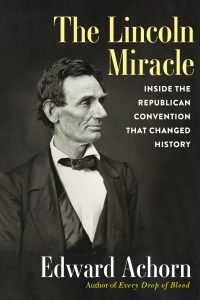
Book Review: Edward Achorn, The Lincoln Miracle
by Phelps GayEdward Achorn, The Lincoln Miracle: Inside the Republican Convention that Changed History Book Review by Phelps Gay Sixty-three years ago, the Lincoln Sesquicentennial Commission published a three-volume work called Lincoln Day by Day, A Chronology, 1809-1865, edited by Earl Schenck Miers. An invaluable reference work, it tells us in short factual entries what Lincoln was […]
Read More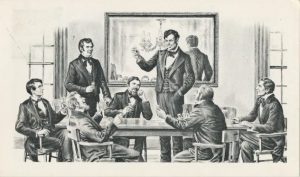
Lincoln & the Franchise
by M. Kelly TilleryLincoln & the Franchise M. Kelly Tillery, Esq. “The most fundamental right in America is the right to vote—and to have it counted. And it’s under assault. In state after state, new laws have been passed, not only to suppress the vote, but to subvert entire elections. We cannot let this happen.” Joseph R. Biden, […]
Read More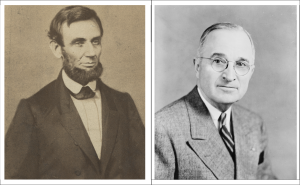
Lincoln & Truman: Varied Expressions of the American Spirit
by Max J. SkidmoreLincoln & Truman: Varied Expressions of the American Spirit By Max J. Skidmore There is, to be sure, an element of unfairness in a comparison of any other president with Abraham Lincoln. It’s a rare presidential ranking that fails to put Lincoln at the top of the list as America’s most outstanding president. Admittedly […]
Read More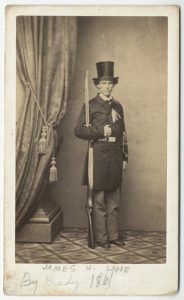
The “Great Emancipator” and the “Grim Chieftan”
by Jason H. SilvermanThe “Great Emancipator” and the “Grim Chieftain” Jason H. Silverman Abraham Lincoln was in trouble – and the fate of the United States tenuously hung in the balance. The firing on Fort Sumter, five weeks after Lincoln took office, ominously signaled the start of civil war. This act, the President proclaimed, “forced upon the country […]
Read More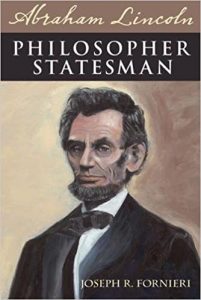
Book Review: “Abraham Lincoln: Philosopher President”
by Burrus M. CarnahanJoseph R. Fornieri, (Carbondale, Southern Illinois University Press, 2014). In the preface to Abraham Lincoln: Philosopher President, Joseph Fornieri recounts President Lincoln’s response to a group of serenaders after his 1864 reelection. Recalling the events of the bitter, divisive campaign, the president reflected that human nature did not change. “In any future great national […]
Read More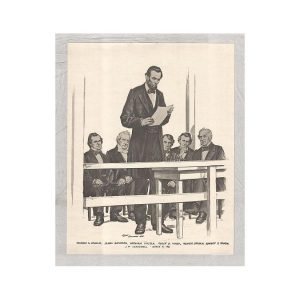
An Interview with Harold Holzer, Author of Lincoln: President-Elect
by Harold HolzerAn Interview with Harold Holzer, Author of Lincoln: President-Elect Sara Gabbard: As we face a new presidency in the United States, it seems an appropriate time to discuss your 2009 book, which focuses on the time between Abraham Lincoln’s election in November 1860 and his inauguration on March 4, 1861. First of all, did he […]
Read More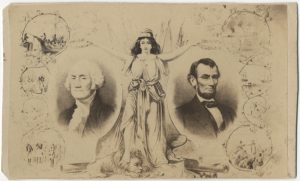
An Interview with Lucas Morel regarding his book Lincoln and the American Founding
by Lucas E. MorelAn Interview with Lucas Morel regarding his book Lincoln and the American Founding Columbia’s Noblest Sons LN1110 Sara Gabbard: I have always been fascinated by the fact that Lincoln’s “four score and seven” years spoken at Gettysburg referred back to 1776. I would have thought that bringing “forth a new nation” would have been […]
Read More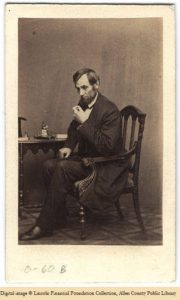
Lincoln’s Clemency: The Policy Limits
by Burrus M. CarnahanAbraham Lincoln has a well-deserved reputation as a merciful man who liberally exercised his presidential pardoning power. John Hay was “amused at the eagerness with which the President caught at any fact which would justify him in saving the life” of a condemned man.[1] Judge Advocate General Joseph Holt, his chief advisor on military trials, […]
Read More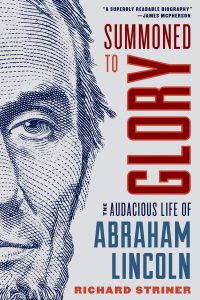
An Interview with Richard Striner
by Richard Striner, Sara GabbardAn Interview with Richard Striner regarding His New Book: Summoned to Glory: The Audacious Life of Abraham Lincoln (Rowman & Littlefield, 2020) Sara Gabbard: The obvious first question should be about your use of the word Audacious in the title. When did you first realize that this word represented the conclusions of your study? Richard […]
Read More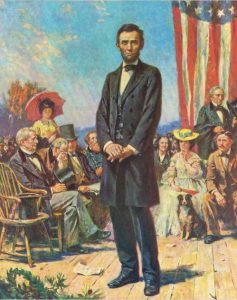
Lincoln, The Founders, and the Rights of Human Nature
by Lucas E. MorelIf they had bumper stickers for carriages back in Lincoln’s day, his would say: “I ❤ the American Founding.” It’s true that one can see the influences of the Bible, Shakespeare, and later political examples like John Quincy Adams, Daniel Webster, and Henry Clay in Lincoln’s speeches. But there was no greater influence on Abraham […]
Read More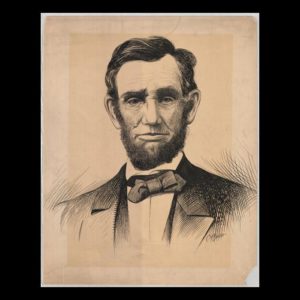
The Intellectual Milieu of Abraham Lincoln
by Allen C. GuelzoThe Intellectual Milieu of Abraham Lincoln By Allen C. Guelzo Abraham Lincoln was not a philosopher, or even what we might today call an intellectual. “Politics were Lincoln’s life,” William Henry Herndon told Jesse Weik in 1887, “and newspapers were his food.” Yet, in almost the same breath, Herndon acknowledged that “we used to discuss […]
Read More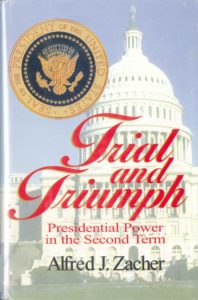
An Interview with Alfred J. Zacher
by Alfred J. ZacherSara Gabbard: Which presidents do you believe showed the greatest leadership skills. Al Zacher: Strong presidential leadership might be defined as the ability of a president to pursue major objectives to fulfillment. This requires perseverance, support of the public and of Congress if their approval is required. This is an understatement, but it provides […]
Read More